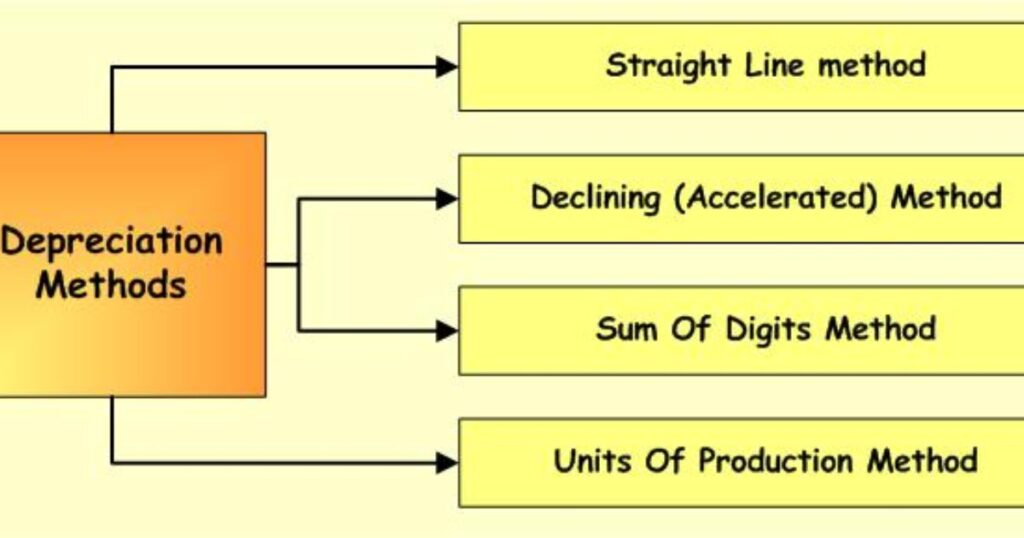When you’re managing rental homes, it’s essential to maximize your tax benefits. One of the most effective ways to do this is by understanding depreciation, a powerful tool that helps reduce your tax obligation.However, many property investors are unsure if they should accelerate depreciation to get faster deductions and take advantage of tax incentives.
If you’re looking for a way to defer taxes and improve cash flow, you may have already heard of accelerated depreciation. This depreciation technique allows you to front-load deductions in the early years of ownership.
What is accelerated depreciation?
Accelerated depreciation is a method that allows property owners to take larger depreciation deductions in the earlier years of an asset’s life. Normally, you would depreciate your property evenly over a long period, but accelerated methods let you fast-track depreciation. This means you can deduct a significant portion of your property value reduction during the initial years, which can greatly reduce your tax burden in the short term.
For rental homes and leasing assets, this can provide much-needed cash flow to reinvest in your properties. Rather than waiting for many years to see the full tax benefits of depreciation, you can take advantage of tax incentives early on. However, the benefit of accelerated depreciation depends on the type of depreciation strategy you use, as well as your overall taxation plan.
Understanding Accelerated Depreciation in Real Estate
When we talk about accelerated depreciation in real estate, we’re often referring to special accounting methods designed for certain parts of a property. Instead of treating the entire property as a single asset, property investors may divide it into components. For example, things like lighting fixtures or HVAC systems may have a shorter life span than the building itself. By identifying these assets, you can apply faster deductions to these components and reduce your taxable amount sooner.
This method is highly valuable for real estate stakeholders looking to maximize their early tax savings. However, it’s not as simple as changing your depreciation approach overnight. You may need a cost segregation study to determine which parts of your property can be depreciated faster. This process often requires the expertise of a tax consultant or financial advisor to ensure that you are adhering to IRS rules while maximizing your taxation advantages.
General Types of Accelerated Depreciation

Double-Declining Balance Method
The Double-Declining Balance Method is one of the most common ways to accelerate depreciation. This method doubles the rate of straight-line depreciation, allowing for much larger deductions in the earlier years of property ownership. Real estate buyers often use this method for high-value assets like equipment or fixtures that lose value quickly.
Sum of the Years’ Digits (SYD)
The Sum of the Years’ Digits (SYD) method is another popular way to accelerate depreciation. With SYD, depreciation is calculated by adding up the years of an asset’s useful life, and applying a fraction of that sum each year. For property sellers or market participants looking to maximize early-year savings, this method provides a structured way to do so.
Why would you want to accelerate depreciation on a rental property?
Accelerating depreciation allows real estate buyers and owners of income properties to take larger deductions during the early years of ownership. This strategy is particularly attractive if you’re aiming to reduce your tax obligation and free up cash for future investments. With tax deferral being a key objective, accelerated depreciation helps you delay paying taxes while increasing liquidity.
By getting larger deductions sooner, you can use these savings to reinvest in additional investment properties or improve your current assets. The fiscal benefits of accelerated depreciation allow you to scale your real estate portfolio faster than with traditional depreciation methods. This gives you a competitive edge in a rapidly evolving market.
What are the risks of accelerating depreciation on a rental property?
While accelerated depreciation provides significant tax relief early on, it can lead to complications when you sell the property. One of the primary concerns is depreciation recapture, a tax applied when you sell a property that has been depreciated. In essence, the IRS requires you to pay back some of the tax repayment benefits you received through accelerated depreciation.
Moreover, by accelerating depreciation, you’re using up your deductions faster. This means fewer deductions will be available in later years, which could lead to a higher tax burden down the line. It’s crucial to have a comprehensive financial strategy in place before deciding to accelerate depreciation.
What impact does accelerated depreciation have on your tax return/tax liability?
Accelerated depreciation can have a profound effect on your annual tax liability. By deducting more in the early years, you’re effectively lowering your taxable amount, which reduces the amount of taxes you owe. This can be a game-changer for real estate stakeholders looking to boost cash flow or reinvest in their properties.
In the long run, you may end up paying more in profit taxation when you sell the property due to depreciation recapture. It’s a trade-off between short-term savings and long-term tax repayment. Working closely with a tax consultant will help you optimize this balance and ensure that your taxation plan is tailored to your unique investment goals.
Advantages of Accelerated Depreciation

The most significant advantage of accelerated depreciation is the immediate tax deferral it offers. By deducting larger amounts early, you reduce your tax bill when you need it most—often in the early stages of property ownership when cash flow might be tight. These fiscal benefits allow you to reinvest tax savings into additional properties or property improvements, enhancing the overall value of your portfolio.
Another benefit is the tax incentives provided by the IRS for specific asset categories. With proper asset classification, you can maximize the deductions for items like furniture, appliances, and specialized equipment. By applying itemized depreciation methods, you get faster returns on your investments.
What is the best depreciation method in real estate? Why?
The best depreciation method for your buy-to-let properties depends on your specific financial strategy and goals. For many investors, accelerated methods like the Double-Declining Balance offer immediate tax benefits and allow for faster deductions on property components. On the other hand, the straight-line method provides more consistent deductions over time and may be better for those with a long-term investment horizon.
Ultimately, the ideal approach depends on factors like your taxation plan, portfolio size, and long-term investment goals. Speaking with a tax advisor will help clarify which method aligns best with your needs.
How does depreciation recapture work when you sell a property?
Depreciation recapture is an important consideration when selling your income properties. Essentially, the IRS requires you to “pay back” some of the depreciation deductions you took during ownership. This recaptured amount is taxed at a higher rate than regular income, adding to your tax obligation. The more depreciation you claimed, the higher your tax debt at the time of sale.
For example, if you used accelerated depreciation on your investment properties, you might face a substantial tax recapture bill when selling. This is why it’s crucial to have a tax planning strategy that considers the taxation advantages and downsides of depreciation.
Cost Segregation and Accelerated Depreciation in Real Estate
One of the most effective ways to utilize accelerated depreciation in real estate is through a cost segregation study. This study allows you to break down your property into various components, each with its own depreciation schedule. By doing so, you can take advantage of asset classification and depreciation allocation to speed up deductions on parts of the property that wear out faster.
Cost segregation is particularly useful for high-value leasing assets and rental homes, where different elements—like lighting, plumbing, or carpeting can be depreciated over shorter periods. It’s a smart way to unlock taxation advantages and improve your cash flow. Working with a property accountant can help ensure the accuracy and compliance of this process.
What advice would you give to someone considering using an accelerated depreciation technique on their rental property?
For those considering accelerated depreciation, it’s vital to consult with a tax consultant or real estate accountant. While the depreciation strategy can provide short-term tax relief, the long-term impact on your tax liability must be carefully weighed. Your decision should be part of a larger fiscal strategy that accounts for both immediate tax benefits and potential recaptured depreciation.
In addition, accelerated depreciation works best when paired with other smart financial strategies, like cost segregation or 100% bonus depreciation. A tailored approach ensures you get the most out of your tax incentives while minimizing future tax repayments.
100% Bonus Depreciation and Section 179 Deduction

The 100% bonus depreciation provision, especially for assets placed in service before 2023, allows for the full depreciation of certain assets in the year they are purchased. This is a huge benefit for property investors looking to write off large amounts quickly. Section 179 also provides a similar tax advantage, although it has limits based on the total amount of assets purchased in a year.
These provisions make it easier for real estate buyers and owners of income properties to reduce their tax burden dramatically in the first year. Consulting with a tax advisor is crucial to fully understanding how these deductions work and how they fit into your overall depreciation technique.
Also read this: MyFastBroker Trading Apps: Your Gateway to Market Expertise
Conclusion
Accelerating depreciation on rental homes can offer immediate tax advantages, boost cash flow, and allow you to reinvest in your property portfolio. However, it’s not without risks. You need to be aware of depreciation recapture, long-term tax obligations, and potential trade-offs in future deductions. Working closely with a real estate accountant ensures that your depreciation approach aligns with your financial goals and helps you optimize your tax incentives. Whether you’re a seasoned investor or just starting out, accelerated depreciation can be a powerful tool if used wisely.

